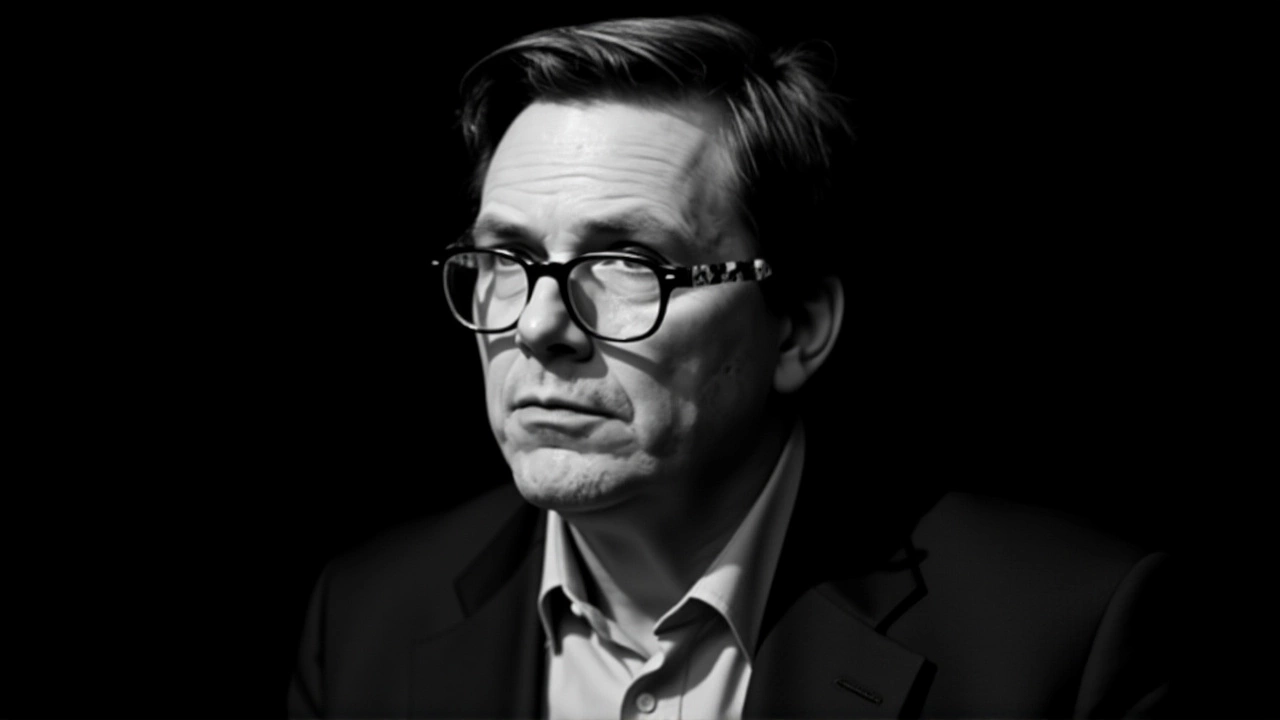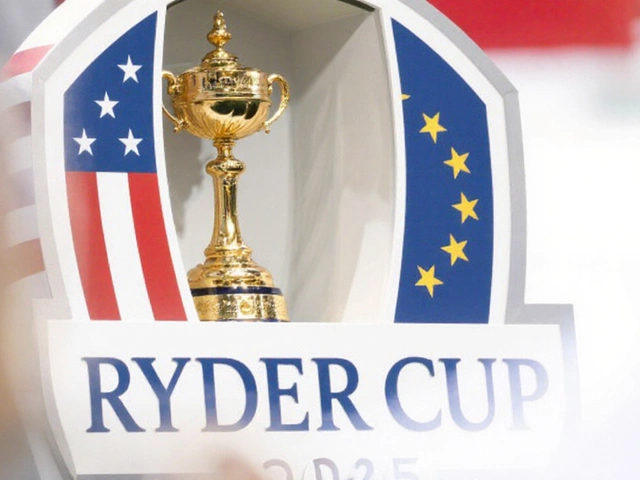 20
Nov,2025
20
Nov,2025
On November 19, 2025, DJ Lee Butler, presenter on In Demand Radio, will take the stage at BOXPARK Liverpool as part of the 'Men Who Inspire' International Men's Day event. Organized by Clare Ellis, founder of Wellness in the City, the morning gathering—running from 9:00 AM to 12:30 PM at Brewery Village, L8 5XJ—isn’t just another panel. It’s a raw, real response to what local advocates call a silent crisis: men dying by suicide at nearly three times the rate of women in the UK, and too many suffering in silence.
Why This Matters Now
It’s no secret that men in the UK are less likely to seek help for mental health struggles. The Office for National Statistics reported last year that 75% of suicide deaths in England and Wales involved men. In Liverpool, the numbers are even starker—local NHS data shows a 22% increase in male mental health referrals since 2021, with many citing job loss, isolation, and stigma as primary drivers. Wellness in the City didn’t wait for policy changes. They built a space where men can show up as they are—no suits, no scripts, just stories.
The Speakers: Real People, Real Recovery
The lineup reads like a who’s who of grassroots resilience. DJ Lee Butler will join Stephen Melling of Recovery Runners and Steve Jones from Steps Together UK for a session titled ‘New Chapters, New Choices.’ Their conversation isn’t about clichés. It’s about the 3 a.m. panic attacks, the jobs lost to addiction, the families fractured by silence—and how running, radio, and rhythm became lifelines.
Jamie Wray of Ways to WOW will speak on human connection—not as a buzzword, but as a survival tool. He’s seen men who’ve gone months without speaking to another soul, then find their voice at a community barbecue or a weekly coffee drop-in. And then there’s Saeed Olayiwola and Stephen Weatherhead, representing the Martin Gallier Project. Their work focuses on suicide prevention through peer networks, not clinical intervention alone. One of their most powerful tools? A simple text message: ‘You’re not alone. I’m here.’
Behind the Scenes: The Support Network
This event didn’t happen in a vacuum. Steps Together UK, MiddleAged Vandals, and MAC Sleep Clinic provided funding, space, and staff. MiddleAged Vandals, a Liverpool-based men’s cycling group, turned their weekly rides into mobile mental health check-ins. One member, a 54-year-old ex-soldier, started bringing a thermos of tea to post-ride chats. Now, 17 men show up every Tuesday—not to talk about bikes, but about grief, guilt, and getting up in the morning.
The MAC Sleep Clinic contributed sleep hygiene workshops, recognizing that poor sleep is both a symptom and a catalyst for depression in men. Their data shows that 68% of men who attended their sessions reported improved mood within four weeks—simply by adjusting bedtime routines and reducing screen exposure.

More Than a Morning
This isn’t an isolated event. It’s the second major mental health initiative at BOXPARK Liverpool this year, following the Raise Up Youth Summit in October. That gathering drew over 800 teens and parents—many of whom now volunteer as peer mentors for the November event. The message is clear: mental health isn’t a phase, a gender issue, or a luxury. It’s infrastructure.
Attendees can drop in for one session or stay for the whole morning. No ticket required for entry, but registration is encouraged. Over 1,200 people have already signed up. That’s not just attendance. That’s a community saying: we see you.
What’s Next?
Clare Ellis has already begun planning for 2026. A mobile outreach van, staffed by peer supporters and trained volunteers, is set to launch in January. It’ll hit housing estates, factories, and truck stops—places where men rarely walk into a therapist’s office. The van’s name? ‘The Listening Bus.’
Meanwhile, Wellness in the City is pushing for local council funding to embed mental health liaisons in every community center in Liverpool. Their pitch? Preventative care costs less than crisis response. And it saves lives.
Frequently Asked Questions
Who is DJ Lee Butler, and why is his presence significant at this event?
DJ Lee Butler is a presenter on In Demand Radio, known for his candid interviews with men navigating addiction, unemployment, and emotional isolation. His presence lends credibility and reach—he’s spoken to thousands through his radio show about vulnerability, making him a trusted voice for men who might distrust traditional therapy. At this event, he’ll share his own journey through recovery, helping normalize the idea that asking for help isn’t weakness.
How is this event different from other mental health talks?
Unlike clinical panels or corporate wellness seminars, this event is designed by people who’ve lived the struggle. Speakers aren’t paid experts—they’re neighbors, former addicts, ex-soldiers, and fathers who’ve lost friends to suicide. The format is unscripted: live Q&As, shared tea breaks, and no podiums. It’s about connection, not presentation. Attendees leave not with handouts, but with phone numbers and promises to check in.
What role does physical activity play in the recovery stories shared here?
For many men, movement is medicine. Recovery Runners uses group runs to build accountability and camaraderie. One participant, a 41-year-old mechanic, said running three mornings a week kept him from drinking. The rhythm of footsteps, the shared silence, the post-run coffee—it’s therapy without the couch. Studies show group physical activity reduces depressive symptoms by up to 30% in men over 40, making it a low-cost, high-impact tool.
Why is BOXPARK Liverpool chosen as the venue?
BOXPARK Liverpool isn’t a traditional community center—it’s a vibrant, youth-driven space with foot traffic, natural energy, and no stigma. Men who might avoid a ‘mental health event’ at a library or church feel comfortable walking into a place known for street food, art, and music. The venue’s openness signals that this isn’t about pathology—it’s about people. It’s also accessible by public transport and near several housing estates with high male suicide rates.
Are men from outside Liverpool welcome to attend?
Absolutely. While the event focuses on Liverpool’s crisis, it’s open to anyone. Organizers have already received registrations from Manchester, Leeds, and even Scotland. The goal isn’t exclusivity—it’s replication. Many attendees plan to take the model back to their towns. The Martin Gallier Project has already shared its peer-support toolkit with six other cities. This event is a blueprint, not a one-off.
How can someone support this initiative if they can’t attend?
Donations go directly to the ‘Listening Bus’ initiative and peer support training. You can also volunteer as a listener—no qualifications needed, just willingness to show up. The Wellness in the City website offers free downloadable conversation guides for friends, partners, and coworkers. Sometimes, the most powerful thing you can do is say: ‘I’ve been there too.’




